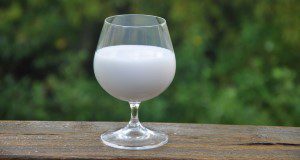La leche de coco es una de las muchas variedades de alternativas vegetales a la leche de vaca. Los factores que pueden llevar a los consumidores hacia alternativas a la leche no láctea incluyen la adherencia a una dieta vegana, la intolerancia a la lactosa, la alergia a la leche de vaca o simplemente la preferencia. El propósito de esta guía es informarle sobre el contenido de nutrientes de la leche de coco y sus posibles beneficios y riesgos para la salud.
This new 4-page article is the Spanish language version of FSHN20-49/FS411, Plant-Based Milks: Coconut, written by Celia Andreo, Daniela Rivero-Mendoza, and Wendy J Dahl, and published by the UF/IFAS Food Science and Human Nutrition Department.
https://edis.ifas.ufl.edu/fs421
Tag: Celia Andreo
Plant-Based Milks: Coconut
Plant-based alternatives to cow’s milk have become a rising trend. Factors that may steer consumers toward nondairy milk alternatives include adherence to a vegan diet, lactose intolerance, allergy to cow’s milk, or simply preference. Coconut milk is one of the many varieties of plant-based milk. Whether you are considered switching to or have already begun purchasing a plant-based milk, the purpose of this new 4-page guide is to inform you on the nutrient content of coconut milk and its potential health benefits and risks. Written by Celia Andreo, Daniela Rivero-Mendoza, and Wendy J. Dahl, and published by the UF/IFAS Food Science and Human Nutrition Department.
https://edis.ifas.ufl.edu/fs411
